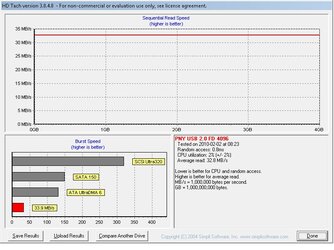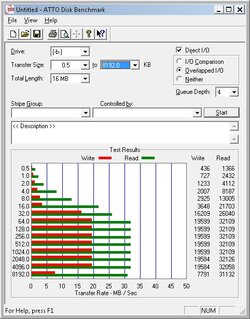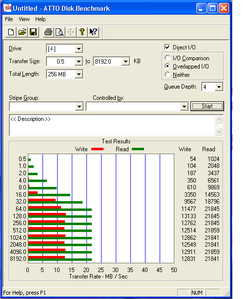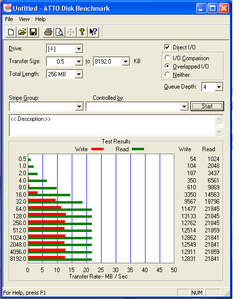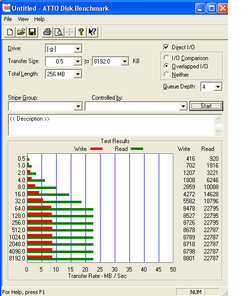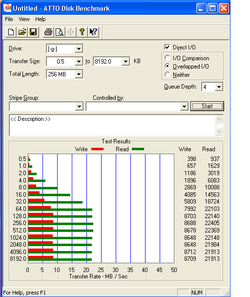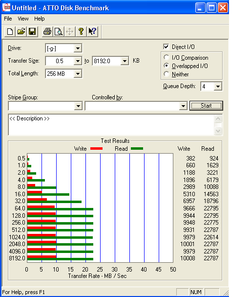- Joined
- Nov 29, 2004
- Location
- T3h Intr@tub3z!
This was written as a stream-of-consciousness piece while I was doing the tests. I present the notes as-is, no spellchecking or reformatting.
Tollhouse's Notes said:I am testing to see if a well-used flash based usb drive can be sped up using a 0-write tool to 'clear' all the registers in the drive. Before doing this, however, i'm going to do a baseline test of the drive as is before doing both a clean format and then test, and then doing a zero-fill and then test.
The drive as is is a Kingston Datatraveler 16gb. It is a USB 2.0 standard drive. As is, windows reports it is 2.15gb used and about 12.8gb free out of a possible 15gb. Over the past few months, it has been written to, erase, written to, erased, hundreds of times. While the read speeds are fine, I have noticed the writes and re-writes have slowed down dramatically.
Before doing the test, I am going to format the drive so that it is seen as "clear", even though as many of us know, a flash-based storage method isn't really clear.. the information is there and thus affects write/rewrite speed.
The first tool I am using is called HD_Speed. It's tests have to be run seperately. The first thing I am doing is a Read Test and will let it run for a minute or so to make sure it is getting a good baseline reading.
The end results from this first read test are as follows (from the log file, a 2 minute run)
[Test Stop 2/1/2010 10:23:53 AM] errors: 0 average: 16.7 MB
I will now do a write test and the results are as follows (from the log file)
[Test Stop 2/1/2010 10:52:22 AM] errors: 0 average: 13.4 MB
So with this as a baseline, I am now going to 0-fill the drive and see if that affects either test in any significant manner. The program I am using to do the 0-fill is Active Killdisk Free. After having done the 0-fill, I had to reinitialize and format the Kingston Thumbdrive for windows to see it.
Now it is on to the read/write tests to see if the 0-fill had any affect on the drive.
[Test Stop 2/1/2010 12:06:55 PM] errors: 0 average: 21.3 MB
A very unexpected jump in speed! Gives me a lot of hope for the write/rewrite portion of the test!
[Test Stop 2/1/2010 1:04:05 PM] errors: 0 average: 13.4 MB
Unfortunately, it does not help the average write/rewrite time.
So all in all, the results of this test were surprising, just not in the ways I was hoping.
